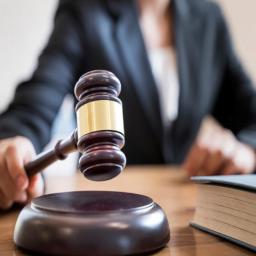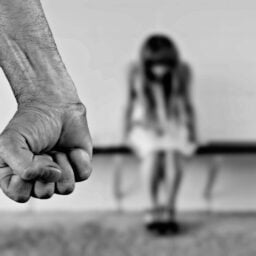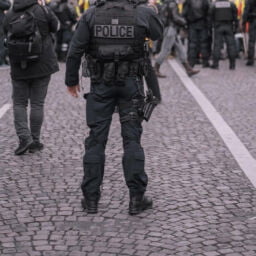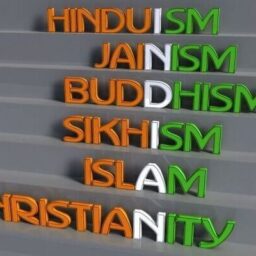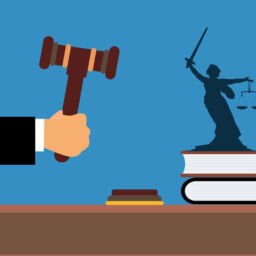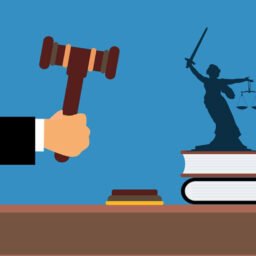
Navtej Singh v Union of India[1] was an enormous success towards the notions of equality and non-discrimination. The decision by the Apex court that consensual sex between two adults is not a matter of State to interfere consequentially led to the decriminalization of Section 377.
Yet, the people belonging to the LBTQ community are not able to give themselves recognition and standing in society. They are still considered a blot on their families and the people surrounding them. The judiciary had done its job in ensuring equality to them one year back but now it is the job of the legislation and the society so that the LGBTQ community can walk away with the prize of the judgment, and it will happen only when they secure the privilege of marriage, adoption, inheritance, guardianship in their respective personal laws or a separate set of legislations.
Legal counselors said the lack of legal provisions for same-sex marriage in civil law and personal laws means it will either require an amendment to the Special Marriages Act or a new separate law dealing with the rights of LGBTQs. It is crucial, that not only the personal laws but also the Constitution & Indian Penal Code be amended to protect the interest of this minority section. IPC will need to change the definition of “Gender” (Section 8, IPC) in its definition section which only deals with ‘males and females. This definition still does not include Transgender, who is considered to be the third gender by the Nalsa Judgement of 2013. The IPC needs to insert a law punishing ‘Conversion Therapy’ which is used for converting LGBTQ communities to more socially accepted individuals. It is strange that in a country where a person can be protected from ‘Conversion of their Religion’, a marginalized community cannot be safeguarded from losing their own identity. The IPC also needs to amplify the section of Defamation and Hate Speeches, to degenerate or debauch this section.
The law needs to cast a shadow of protection on this community as we see in the example of the ‘Prevention of Atrocities Act’ for scheduled caste and scheduled tribes. Preeminent, the socially and instructively Backward Communities ought to incorporate these areas, reservations in employments and instructive foundations would guarantee that their position is raised in the general public. The commonness of the LGBTQ people group in raised positions would thusly prompt more acknowledgment and nobility in the general public. They must be represented in every sector of society which would improve their inclusiveness and make the general public use to their identity. LGBTQ section is to be pushed to its limit to bring them at par with other genders in all sections of society.
Indian society will take a lot of time to understand this concept which seems divergent and unholy to them. The legislation must draft a law that is a balance of opinions and also sentimental of the religious beliefs towards this sensitive issue. The legislation needs to take a leap of faith and draft a law that deals with ensuring marriage, divorce, adoption, and inheritance rights of LGBTQs. The decision of the Supreme Court cannot be enjoyed unless and until it can be enforced in public spheres of life.
The Canadian Legislation can be taken as an example for encircling this law for the LGBTQ people group. ‘C-16 Bill of Canada’ amends the Canadian Human Rights Act to add gender identity and gender expression to the list of prohibited grounds of discrimination. The Civil Marriage Act, 2005 of Canada legalized same-sex marriages. The Act has very beautifully encapsulated this. The Act defines marriage as, “Marriage – certain aspects of capacity: Marriage, for civil purposes, is the lawful union of two persons to the exclusion of all others”. The Act also keeps in view the Religious non-acceptance towards same-sex couples and manages to keep everyone at the same bar and a servant of their own choices. This has been done in this way, “Religious officials: It is recognized that officials of religious groups are free to refuse to perform marriages that are not following their religious beliefs”.[2]
This is a very good example of both religious and gender identity being protected in a diverse country and being attuned with each other. This is the very example of the philosophy of ‘Harmonious Construction’. It is very fundamental for the smooth functioning of law and less friction in society, the needs and views of all are given consideration and put on equal footing. The philosophy of Harmonious Construction’ would construct an idea of a balanced approach towards two sections of society with diverse views on the topic. The old idea that ‘Not only must justice be done but also seen to done’ should be borne in mind. The case of legitimizing the personal law rights of LGBTQ is still sub judice before the Delhi High Court, but the response of the Centre to this petition is still similar to what was said during the arguments of decriminalizing Section 377 which reeked and still reeks of homophobia.
Society should act as a catalyst to form better and responsible individuals. The power play among genders should take a back seat and they should rather together aim towards creating a better future for the generations ahead. School curriculums must deal especially with bullying and harassing programs and there should be skilled staff to deal with these circumstances. The constant conversation around subjects that appear to be sensitive to the examination will render mindfulness among kids. The generation must understand the consequences of their actions and words. For this, we should see a change in the way we up bring up and even school our children. Shifting gender roles, a free and safe environment to present their thoughts, pressing more on the ideas of humbleness and kindness will assumedly provide good human beings to society. The change should be brought by us and backed by the legal fraternity.
Author(s) Name: Hamda Akhtarul Arfeen (Graduate, Aligarh Muslim University)
[1] W. P. (Crl.) No. 76 of 2016.
[2] The Civil Marriage Act, 2005 Canada.



